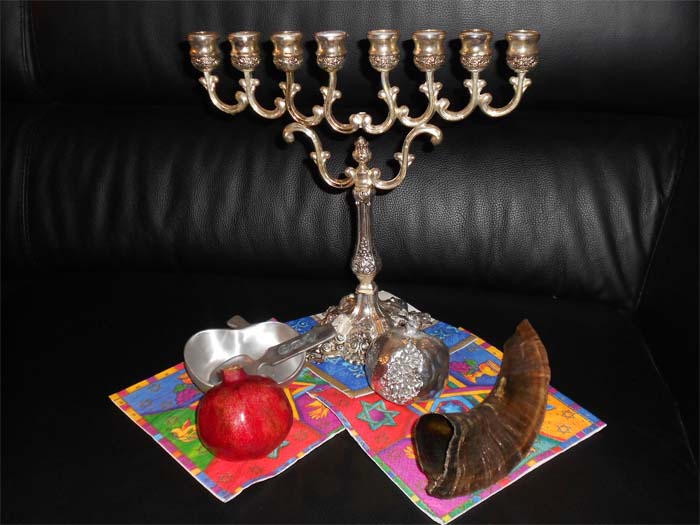Jewish students celebrate Rosh Hashanah and Yom Kippur
September 9, 2013
Every year in September, Jewish students across all grades celebrate their new year during a holiday called Rosh Hashana, followed up by Yom Kippur, the holiest day in the Jewish calendar.
Rosh Hashanah, which literally translates to “head of the year” is observed for the first two days of the Jewish calendar in the month of Tishrei and is the anniversary of the creation of Adam and Eve. This holiday is seen as the date when the world was created and marks when the Jewish calendar year advances. Each year, Jews across the world celebrate by eating a traditional family dinner including many sweet foods, such as apples and honey, to symbolize a sweet new year and attend services at their local synagogue.
“For Rosh Hashanah, I ate dinner with family and friends Wednesday night before services, and went to services Thursday morning,” junior Becca Merriman-Goldring said. “I love getting the chance to celebrate with friends and family, and to sing with my friends in choir during the services.”
One of the fundamental ceremonies of Rosh Hashana and Yom Kippur is blowing the shofar—the ram’s horn—in synagogue throughout services. The sound of the shofar refers to the biblical story of the sacrifice of Isaac and also signifies the trumpet blast of a people’s coronation of theirking. It is said that if you want to tell something to God, be it a request you have for him or simply to confess a sin, this is the time he is most likely to hear you.
Rosh Hashana also initiates the “10 Days of Repentence” ending on Yom Kippur, the Day of Atonement. The 10 days in between the two holidays are dedicated to atoning for your sins and ensuring good fate for the coming year. Jews around the globe dedicate these 10 days to apologizing to family and friends as well as making amends with adversaries.
“For Yom Kippur I look forward to fasting, praying and reflecting on the sins of the past year,” senior Jeff Horowitz said. “I especially enjoy reconnecting with the religion.”
Unlike the festivities and joyous celebrations that surround Rosh Hashanah as Jews welcome the New Year, Yom Kippur is a much more solemn and reflective day. On this day, Jews turn their attention away from all their good deeds of the past year, and focus on the sins they have committed instead, pleading to God for forgiveness. Fasting for 24 hours and refraining from work are two of the ways that Jews demonstrate their repentance.
“On Rosh Hashana we went to services and ate a traditional, delicious family meal,” senior Adam Friedman said. “Yom Kippur is a much more solemn holiday, so I plan on just going to services and fasting.”
Throughout all of the High Holidays, many Jewish students enjoy many of the same traditions and attend the same services at their synagogue, but everyone has their own favorite part. Most of the students at Jefferson said that the best part of the High Holidays is seeing their extended family again and getting the chance to celebrate all together. Others also emphasized the cultural food they get to consume.
“I love eating apples and honey on Rosh Hashana and breaking the fast on Yom Kippur,” senior Carrie Murton said.
This year, Rosh Hashanah fell on Wednesday, Sept. 4, giving the students ten days of feasting, asking forgiveness, and enjoying their friends and family before Yom Kippur hails the end of the High Holidays.
“Judaism is a sacred religion in which all holidays are cherished,” junior Andrew Haymaker said. “However, Rosh Hashanah and Yom Kippur are when we as a people are closest to God.”






